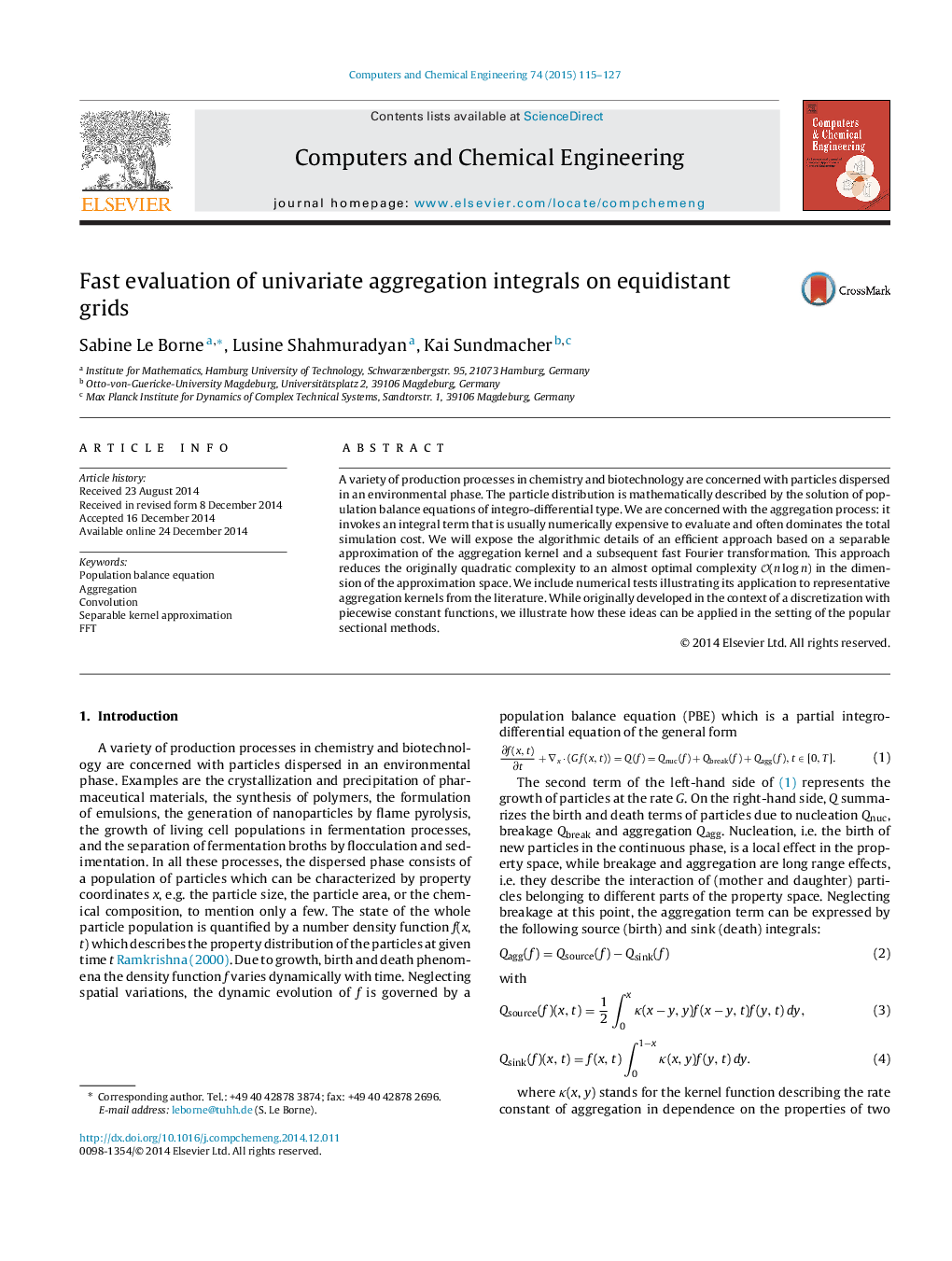| Article ID | Journal | Published Year | Pages | File Type |
|---|---|---|---|---|
| 172265 | Computers & Chemical Engineering | 2015 | 13 Pages |
•We efficiently solve the aggregation integral in population balance equations.•Algorithms of originally quadratic complexity are reduced to almost linear complexity.•New techniques apply to various discretization approaches.•Numerical results are included for representative kernel functions from the literature.•Techniques are introduced for uniform grids but generalize to (recursively) graded grids.
A variety of production processes in chemistry and biotechnology are concerned with particles dispersed in an environmental phase. The particle distribution is mathematically described by the solution of population balance equations of integro-differential type. We are concerned with the aggregation process: it invokes an integral term that is usually numerically expensive to evaluate and often dominates the total simulation cost. We will expose the algorithmic details of an efficient approach based on a separable approximation of the aggregation kernel and a subsequent fast Fourier transformation. This approach reduces the originally quadratic complexity to an almost optimal complexity O(nlogn)O(nlogn) in the dimension of the approximation space. We include numerical tests illustrating its application to representative aggregation kernels from the literature. While originally developed in the context of a discretization with piecewise constant functions, we illustrate how these ideas can be applied in the setting of the popular sectional methods.
